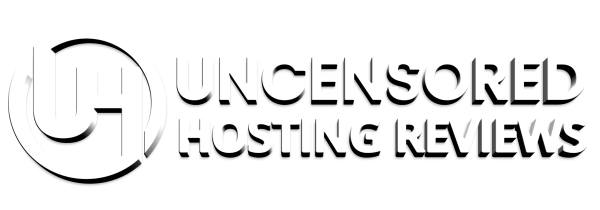Internet in Serbia
According to latest stats published by Speedtest.net, Serbia has an average download speed of 15.55 Mbps and an average upload speed of 7.76 Mbps.
Serbian Internet Penetration
The current population of Serbia is roughly 7.2 million. According to data published by the World Bank Group, 51.2% were connected to the Internet in 2013, lagging behind neighbor countries, such as Croatia (66.7%) and Bosnia and Herzegovina (67.9%). In 2012, Serbia ranked 44th in the world with 1.1 million Internet hosts.
Types of Connection – Percentages
The Internet in Serbia primarily consists of broadband connections, along with a few dial-up connections. Main broadband connections include DSL, cable, wireless, FTTH and FTTB. As of 2015, some 1.56 million households have broadband Internet connections, distributed as follows:
- XDSL – 46.3%
- Cable – 30.4%
- Mobile – 15.5%
- Wireless – 5.6%
- FTTx – 2%
How Many ISPs?
The infrastructure is highly developed owing to the fact that the broadband market belongs to the private sector, and is unevenly divided between a plethora of ISPs. There are 212 private ISPs currently operating in Serbia, providing distinct broadband services: 91 provide wireless access, 37 cable access, 24 FTTH access, 15 DSL access, 13 LAN access, and 3 mobile access.
Market Share – Percentages
However, only a handful of these companies own the entire market share, the most important local ISP being Telekom Srbija, owning a whopping 46% of the share market. Other important companies include SBB (21%), Telenor (7%), Ikom (3%), and VIP Mobile (3%).
Cable and DSL are the most widespread types of broadband connections in Serbia. Even though DSL is generally slower than Cable, it is largely reported that the former is by far more reliable than the latter, customers reporting as much as 4 hours’ worth of downtime for Cable in a single week, regardless of provider.
Pricing for Basic Subscriptions
Stats published by Numbeo.com suggest that getting access to the Internet in Serbia is relatively cheap and easy. As such, for a basic Internet subscription, comprising speeds of 10 Mbps, on either DSL/cable technology, one would need to pay around $15 per month in local currency (RSD), thus lining up with other neighboring countries such as Romania, Hungary or Bulgaria in terms of low subscription fees.
Below you can find some of the most important characteristics of the Internet in Serbia:
1. Industry belongs to the private sector
Telekom Srbija is currently the leader on the Serbian Internet market with a 46% share, followed by SBB and Telenor with a 21% and 3% share respectively. Apart from Internet services, Telekom Srbija also offers local and international mobile telephony services, lease of lines, private circuits and telecommunications equipment, and carries out additional activities for the construction and operation of the international transport network.
2. Moderate costs – usually equal between different providers
Even though Telekom Srbija is the current market “incumbent”, the competition is nonetheless very fierce between all the major local ISPs, each striving to provide better services than the other. This can be noticed both in the exceptional quality of service provided by each particular company, and in the prices which are not only very low, but also equal between different providers.
3. Lenient Internet laws
The Serbian constitution and law provide for freedom of speech and press, and generally respects these rights in practice. Copyright law is lenient and rather vague, and generally does not interfere with what happens on the Internet; this could explain why important torrenting websites such as The Pirate Bay or IsoHunt are not banned, or why the issue of online copyright infringement is ignored altogether. In recent years, human rights activists have reported continuous violation of privacy by local authorities, either in terms of monitoring telephone conversations, or spying on online activity of all citizens which are thought to “pose a risk to national security”. However, these claims are inside the realm of speculation, no concrete evidence being presented to support them.
Datacenter Colocation in Serbia
According to data provided by datacentermap.com, there are currently a total of three main companies which offer datacenter colocation services to a local clientele, namely Absolut OK Datacenter, Radijus Vektor Sava Centar, as well as VeratNet. Generally, customers can get the following benefits with either company: month-to-month contractual commitment, leasing of rack space, enclosures and/or cages, guaranteed redundancy of all systems, state-of-the-art servers, 99.99%+ uptime, redundant cabling and floor cooling, fire detection system, 24/7 onsite surveillance personnel. It is unclear where costs for these services start.
Web Hosting in Serbia
The web hosting in Serbia is generally well developed and experiences fast-paced advancement along with the Internet industry.
By analyzing some of the prominent companies on the local market, we’ve determined that costs for core services, such as Shared, VPS or Dedicated Hosting, start at roughly $20, $50 and $100 respectively. Considering the value for money for Shared Hosting services especially, prices seem inflated; typically, one would get less than 2GB of disk space and 100GB of bandwidth per month, which are surprisingly low features. Optional features such as SSL certificates, website builders or spam protection are provided, but with high prices still. Support for international languages such as English or French is very limited, meaning that these companies mostly cater to a local clientele exclusively. Pricing is usually shown in EUR.
Here you’ll find the largest list with Serbia hosting reviews. We’ve listed all Serbia hosting providers with our UNCENSORED review and that of users.

